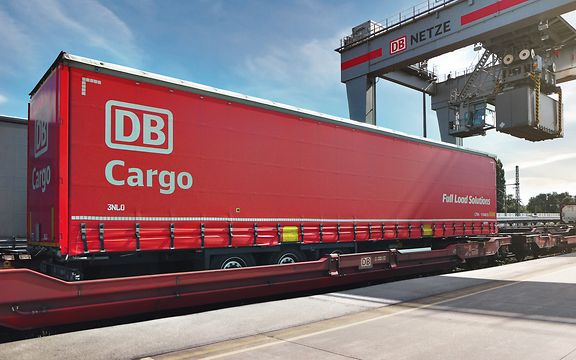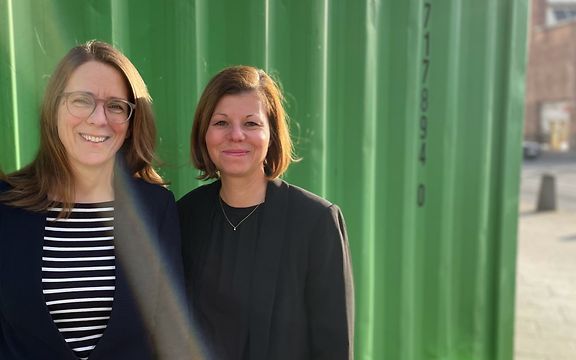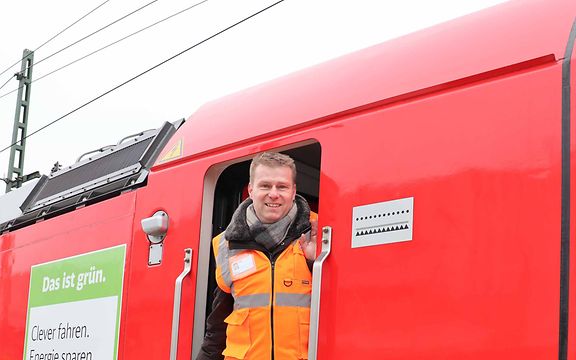Ethylene oxide, ammonia and petrol are just three examples of different substances that have one thing in common: They are all classified as dangerous goods because they have dangerous properties, such as being highly flammable or toxic, or even because they pose an explosion risk. Extra precautions must be taken when transporting such substances.
DB Cargo BTT shows just how successfully this can be done. The DB Cargo subsidiary leverages more than 30 years of expertise in dangerous goods to transport sensitive chemicals and mineral oils. Its clear mission: to shift as much transport of dangerous goods as possible to rail. "There is a good reason for this," explains Stephan Bude, Dangerous Goods Safety Adviser at DB Cargo BTT. "Rail is by far one of the safest modes of transport. Statistically, 42 times fewer accidents happen on rail than on the roads."
Dangerous goods expertise in a strong network
The Mainz-based dangerous goods specialist handles around 12,000 block train transports and almost 310,000 single-wagonload consignments per year in total for its customers. And that’s not all. The company integrates numerous rail logistics services into its logistics concepts and offers customers multimodal logistics solutions from a single source. DB Cargo BTT combines the strengths of an innovative specialist in dangerous goods with the advantages of the large DB Cargo network.
Safety meetings and knowledge sharing
Transporting sensitive freight of course requires special care. This means that every transport is seamlessly monitored, and processes are documented and continuously improved. In addition, internal and external checks and inspections are routine for the company's teams. Safety meetings are held regularly with customers to ensure dialogue between all parties involved. DB Cargo BTT's dangerous goods experts visit their customers on site and get an idea of the different procedures and processes at the loading facilities and track systems. This helps them identify potential for improvement along the entire transport chain.
Safety always comes first
And just in case, DB Cargo BTT and DB Cargo are also well prepared if a disruption or irregularity does occur despite all the safety precautions. It has a comprehensive set of internal rules that go into effect along with a list of measures to be carried out, an emergency management system and a reporting chain. "We have an on-call service 24/7, 365 days a year. In the event of an emergency, an internal group of experts from a wide range of departments from operations to sales will come together if necessary and work to find a quick solution for our customers and take any protective measures. We provide advice and support, ensure that information is shared quickly, and take action if necessary," Bude says.
The right equipment at all times
DB Cargo has a diverse and modern fleet for transporting dangerous goods, including:
- Compressed gas tank wagons
- Tank wagons for chemical products
- Bulk freight wagons for free-flowing goods
- Dry bulk freight wagons and silo tank wagons for particulate products
- Salt wagons
- Container wagons
- Various tank containers and curtain-side containers

Modern tank containers with the highest transport standards for sensitive products.
Certified expertise in dangerous goods
Dangerous goods transports are only permitted if the relevant national and international legal provisions are complied with at every step in the transport process. "We aim for maximum safety throughout the entire supply chain, from sender to recipient," says Bude, "which is why we also actively participate in the European Chemical Industry Council (CEFIC) Safety and Quality Assessment System (SQAS) in several European countries and are certified accordingly." DB Cargo BTT also undergoes regular ISO 9001 certification audits, confirming its high safety standards.
New dangerous goods: "You never stop learning"
Special challenges arise when new hazardous goods need to be transported, Bude explains: "It is always important to stay on the ball when it comes to dangerous goods. Just in the last few years, so much has happened in hydrogen and battery transport that continuous learning and training are essential, for example so we can use new equipment."








